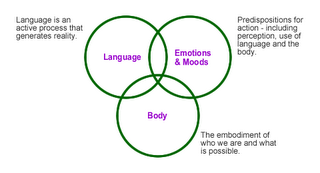Coaching process
Funny that the words that stood out were ‘Building others according to their needs’. This is where a coach comes in. The coaches’ unique ability to identify the need of the individual and enable them to build there from– that’s their forte. In most cases, this requires reading between the lines. In many situations, what the clients think they want is quite different from their actual need.
Let’s look at a scenario: I met up with Alex a few weeks ago. He is 18, loves football and hates studies. Like most teenagers, he has no clear idea of what he wants to do and works few days a month, only when he desperately needs the money. And his dream is to make money without having to go through the drudgery of work.
Let’s now look at how as his coach we can help Alex help himself. Firstly, let’s set a goal for this discussion. It would be – Alex finding out what he wants to do with his career. To be even more specific, career options available for Alex. Why might this be important? Because he lives in Dubai on a temporary visa, comes from a European family where at his age, he is expected to take care of himself and besides having to settle down on something more satisfactory than just working for money.
What sort of a time frame is he looking at? He is looking at 12 months from now. And is this part of a bigger goal. Definitely! To attain the state of freedom where Alex can do what he wants to when he wants to and where he wants to. After all, isn’t this everyone’s dream?
So let’s go about looking how he can make money without having to go through the drudgery of work. Even before we consider the options available, let’s take a peek into the current reality.
What’s his current situation? Currently, he lives in Dubai on a temporary visa, is pressured by his family to find a job and he intends to go back to London so he can continue with further studies with no great interest. What has he done so far to achieve his goal of career options – nothing much.
What’s holding him back? He just does not know he can move forward. Sometimes, when we are unsure of what lays ahead, the place of security is ‘Present – just be and things will sort itself out’. While this may work in some rare cases, in Alex’s case, he is in control of the steer. All he needs is to realize that and move forward.
Here, let’s consider his strengths and things he needs to do differently to be more effective at what he does. Firstly his strengths: He is young, speaks one international business language (English), recognizes that he is more of a field person rather than a behind-the-desk types, drives, has an authoritative voice and grasps easily on the deliverables.
Now, on the things he needs to do differently – he needs to bring in more enthusiasm with him. But then, who can stop enthusiasm when it is natural? It’s our duty to help him to find that environment where he is naturally enthused.
So, what options lay before him? One of the best ways to narrow down on his options is to look at what he loves the most. Alex loves football. He loves to play as well as watch. When I asked him if he ever considered becoming a football player, he said that boys are trained as early as 9 years of age and therefore, it’s late for him to begin a career as a player. No problem. Let’s look at what other career options exist in the world of football.
Referee, football coach, sports massage therapist, Assistant coaching (setting up equipments), volunteering (if he still needs clarity after having gained clear understanding of the options), sports journalist, sports photographer, selling sponsorships, sports physiotherapist, sports development officer, sports and exercise scientist and commentator.
Now that the career options and the details (which he will have collected) lay before Alex, he is in a much better position to make an informed decision.
Having understood the pros and cons of each option, Alex is now also able to identify that option which excites him the most. As his coach, we will then help him find ways to integrate his strengths into that option, get a realistic picture of the obstacles that stand in his way, means to overcome them and action plans to move it forward.
Does this fit into his bigger goal of being able to make money without going through the drudgery of work? You bet!
When you do the job you love the most, you don’t work a single day!
